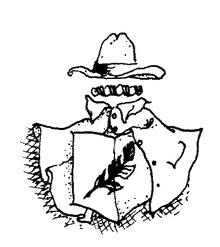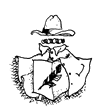 |
| The
Arms of a Poet |
Not passed into oblivion
N. John Hall.
Ah, this is it, is it not? The day so many of us have
waited for? Waited years, decades, a century. It is, I submit a very
real day for us. For, surely, Soames lives, suffers, exists. His story
has entered into our lives; or, we have entered into his history, else
why are we here tonight? Are we not the creatures he saw on 3 June 1997
in the Reading Room of the British Museum? Have we not become those
people in strange-to-Soames clothes, with our strange accents and the
scent of carbolic about us?
We are allied with Soames today. We are allied,
too, with his friend—not great, intimate friend, but friend nonetheless—Max
Beerbohm. How else, except through those three little catalogue-pasted
slips that Soames knew so well, should we know anything much of Soames?
When Max was asked why he had left London,
in 1910 at the age of thirty-seven, for self-exile to Rapallo he replied,
“How many people were there in London? Eight Million. I knew them
all.” He had known the departed Oscar Wilde and Aubrey Beardsley,
Dan Leno and Whistler and Swinburne and Meredith; and he now knew Henry
James, and J. M. Barrie and John Galsworthy and Arnold Bennett and Chesterton
and Belloc. He left marvellous caricatures, and some telling comments,
on all of them: he could be quite critical, really.
Of G. B. Shaw, Max said he had only two thoughts
for the man: a wish that he had never been born, and a kind hope that
he would never die. He said of Frank Harris that Frank did occasionally
tell the truth... “when his imagination flagged.” Of the self-puffing
novelist Hall Caine he said, no, we must not despise him altogether,
rather “we should be grateful to any man who makes himself ridiculous.”
Rudyard Kipling was a particular bête
noire: an “Apocalyptic Bounder who can do such fine things... but
mostly prefers to stand (on tip-toe and stridently) for all that is
cheap and nasty.” He could not, on the other hand, appreciate W.
B. Yeats’s mysticism; Yeats always made him feel "rather uncomfortable,
as though I had submitted myself to a mesmerist who somehow didn’t
mesmerise me.” Privately, he wrote, “Me [Yeats] drives to
excesses of grossest philistinism, sympathetic though I generally am
to men of genius. A genius he is of course; and geniuses are generally
asinine; but his particular asinineness bores me and antagonises me.”
Samuel Behrman recalled that Max “shied
away from lunacy not only in its violent forms but also in its milder
forms, one of these being utopianism”; and of H. G. Wells’s
utopianism Max remarked that “good sense about trivialities is
better than nonsense about things that matter.” When Reggie Turner
sent him Wells’s A History of the World, Max retorted, only half
in jest, “You couldn’t have given me a present that I should
have hated more.”
Of course Max had many positive things to say,
too. Of George Moore, for example, he wrote that he was a writer who,
apparently, had been given by Nature no gift whatever for literature:
Some of the good writers have begun with a
scant gift for writing. But which of them with no gift at all? Moore
is the only instance I ever heard of. Somehow, in the course of long
years, he learned to express himself beautifully. I call that great.
But enough of other writers. We are here tonight
because of Enoch Soames, Catholic Diabolist poet, a writer of small
talent but large ambitions and grand designs on posterity. And of Enoch
Soames Max wrote, in effect, a whole history—practically all we
have of the man. He has made him live for us—for Soames does live,
does he not? Why else would we be here tonight? Has not Enoch Soames
entered into our very lives— and for that matter, we into his?
Some people have asserted that, in giving us
the troubled history of Enoch Soames, Max perfectly anticipated that
vague business—encompassing structuralism, post-structuralism,
new historicism, new Marxism, Lacanian Freudianism, deconstruction and
so on—called post-modernism. What a terrible thing to say of anyone.
I think I can safely tell you what he would have thought about that
label, and about Barthes and Foucault and Derrida. I know because he
wrote it down in an essay, published some eighty years ago:
M. Bergson, in his well known
essay on laughter says... well, he says many things; but none of these,
though I have just read them, do I clearly remember, nor am I sure
that I understood any of them. That is the worst of these fashionable
philosophers... Somehow I never manage to read them till they are
just going out of fashion, and even then I don’t seem able to
cope with them. About twelve years ago, when every one talked to me
about Pragmatism and William James, I found myself moved by a dull
but irresistible impulse to try Schopenhauer, of whom, years before
that, I had heard that he was the easiest reading in the world, and
the most exciting and amusing. I wrestled with Schopenhauer for a
day or so, in vain. Time passed; M. Bergson appeared “and for
his hour was lord of the ascendant”; I tardily tackled William
James. I bore in mind, as I approached him, the testimonials that
had been lavished on him by all my friends. Alas, I was insensible
to his thrillingness. His gaiety did not make me gay. I could make
nothing of William James. And now, in the fullness of time, I have
been floored by M. Bergson.
It distresses me, this failure to keep pace
with the leaders of thought as they pass into oblivion.
Max gave us a profound lesson when he taught us to be
“grateful to any man who makes himself ridiculous.” And Enoch
Soames has not altogether passed into oblivion. We, here tonight, attest
to his existence. His literary remains: are they not on exhibition in
the manuscript gallery tonight? And is not his memory yet very real?
As blurred as are the lines between the black
and the white, the written and the verbal, the dance and the dancer,
the living and the dead, the text and the non-text, the representation
and represented, past and present, time-past and time-present, fiction
and fact, reality and illusion, tonight we bear witness to the effect
that the past can have on this our own poor, diminished and vulgar present.
The one who has made all this possible in telling
us the history of Soames—of the desperate bid for posterity’s
gaze by that very limited but devoted poet; the man who has done so
much for Soames’s memory and, accordingly, so much for us; the
man who has shown us what it means to take chances, even desperate and
losing ones; the man who has done this for us is Max Beerbohm.
I call that great.
|



